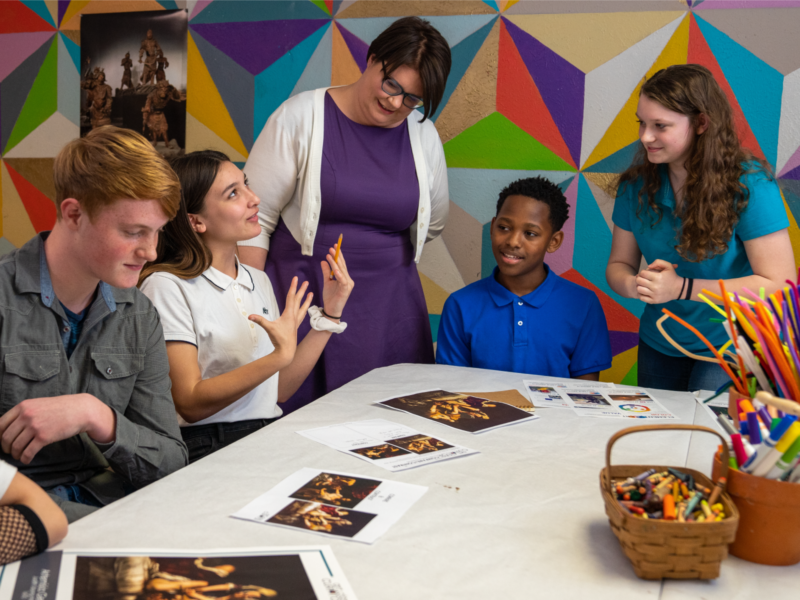
Art has long been hailed as a universal language, transcending boundaries of culture, time, and even spoken word. It possesses the extraordinary ability to evoke emotions, stimulate imagination, and provoke deep introspection. From ancient cave paintings to contemporary installations, art has evolved, adapted, and thrived as a powerful medium of expression and reflection of human experience. In this article, we delve into the diverse facets of art, its profound impact on individuals and society, and the extraordinary capacity of artists to shape our world.
Art is more than mere aesthetics; it is the manifestation of human creativity, conveying ideas, experiences, and emotions. It holds a mirror to society, enabling us to examine our existence, question our beliefs, and challenge the status quo. Through its various forms such as painting, sculpture, music, dance, literature, and cinema, art invites us into a realm of boundless possibilities, where we can explore the depths of our consciousness and forge connections with others.
One of art’s most enchanting qualities is its ability to evoke emotions. A single stroke of a brush, a melodic note, or a poignant line of poetry can stir feelings of joy, sorrow, anger, or awe within us. Art has the power to give voice to the muted emotions residing within our souls, allowing us to experience catharsis and find solace in the midst of life’s turbulence. It serves as a vessel for emotions that cannot be adequately expressed through conventional means, offering a release and a refuge in a world that often fails to grasp the complexities of the human heart.
Moreover, art stimulates our imagination, transporting us to realms beyond the confines of reality. It encourages us to think beyond the ordinary, to question preconceived notions, and to envision new possibilities. Artists, with their creative genius, become architects of alternate worlds, challenging our perspectives and expanding our horizons. They invite us to explore their subjective realities, thereby empowering us to reshape our own perception of the world we inhabit.
Art is also a catalyst for social change. Throughout history, artists have used their craft to advocate for justice, challenge oppression, and inspire revolutions. Art has the remarkable ability to transcend the limitations of language, reaching across cultures and generations, igniting a spark that fuels collective action. Whether through political satire, thought-provoking installations, or powerful performances, art has the capacity to challenge the status quo, shift paradigms, and galvanize communities to strive for a better future.
The impact of art extends beyond the individual and societal realms; it has the potential to heal and restore. Art therapy has emerged as a powerful tool in mental health treatment, offering individuals an avenue to express their deepest fears, traumas, and insecurities. Through creative self-expression, individuals can navigate the labyrinth of their emotions, find meaning in their experiences, and embark on a journey of healing and self-discovery. Art becomes a sanctuary, where pain can be transformed into beauty, scars into stories, and vulnerability into strength.
In conclusion, art is a profound testament to the intricacies of the human spirit. It encapsulates our capacity for creativity, empathy, and resilience. Art has the power to awaken dormant emotions, ignite our imagination, and incite societal change. It speaks a language that transcends boundaries, unifying people from diverse backgrounds under the banner of shared experience. As we navigate the complexities of life, let us embrace art’s transformative power, allowing it to unfurl the hidden landscapes of our souls and guide us on a journey of self-discovery, empathy, and growth.












